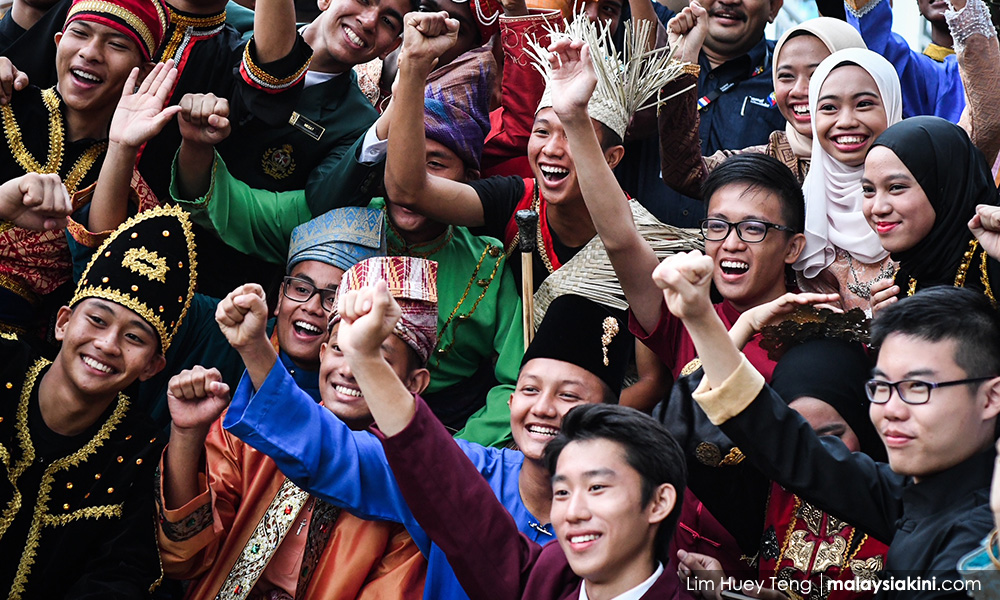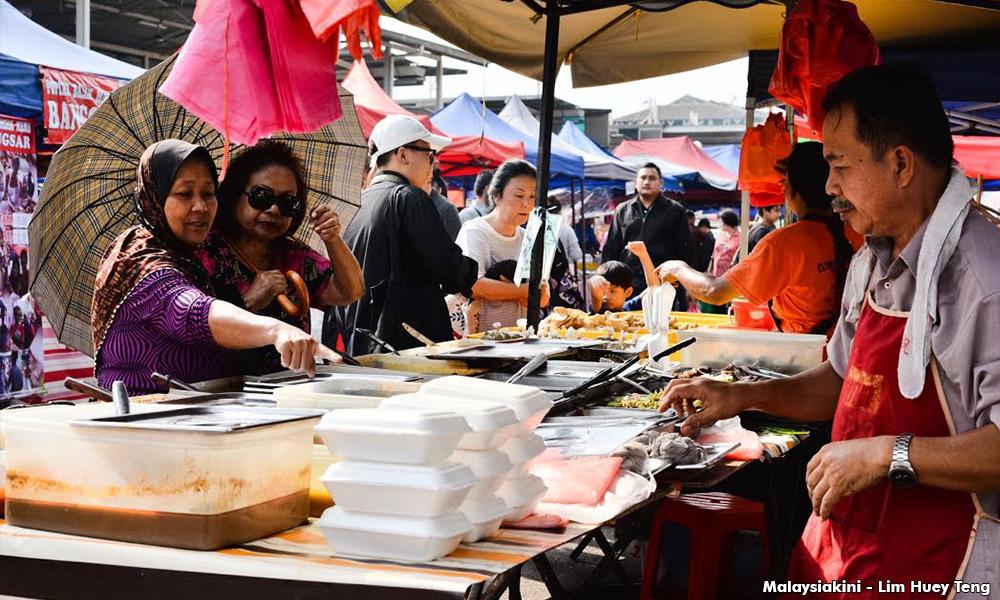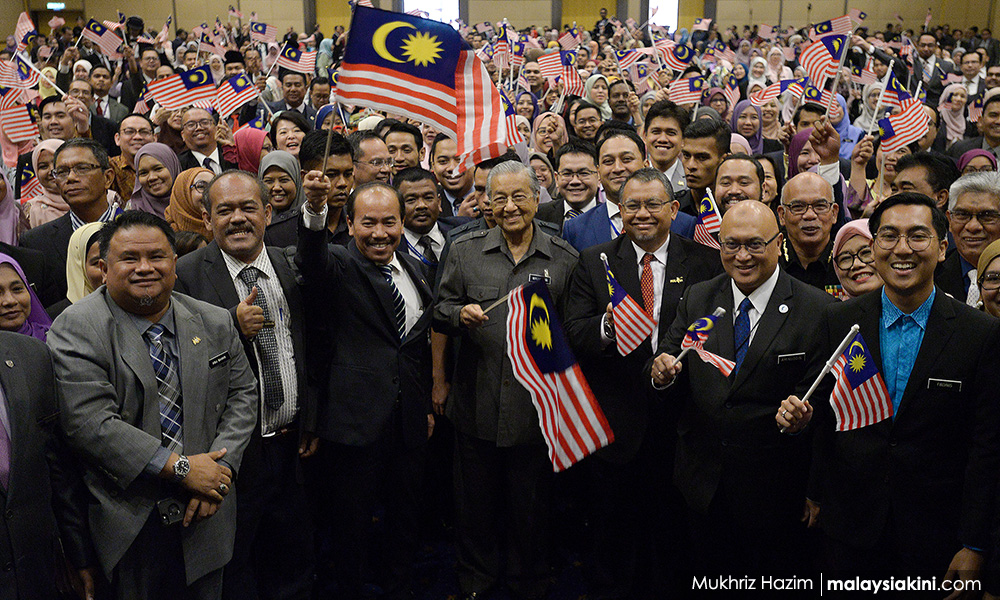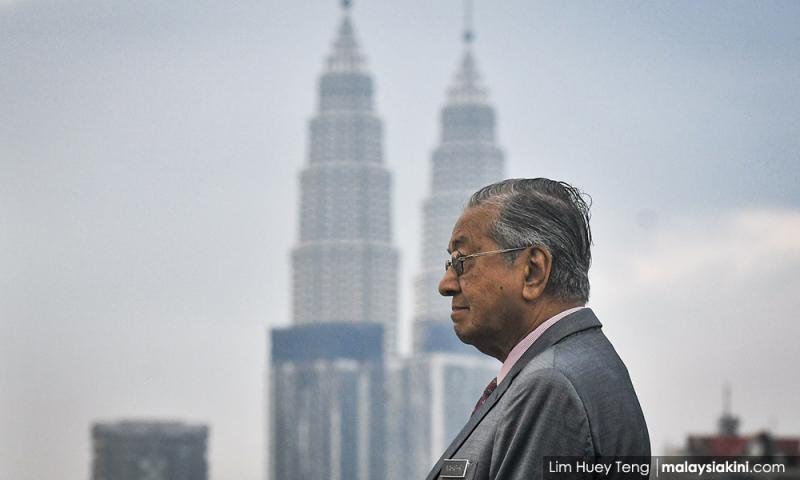Why Vision 2020 has failed
COMMENT | It is now called Shared Prosperity Vision 2030 (SPV 2030). The people have been promised that the goals of Vision 2020 will finally be realised in 2030. The failures of 2020 were blamed on the leaders between the 4th and the 7th Prime Minister. In other words, we failed because of Abdullah Badawi and Najib Razak.
No; it is not fair to both Najib and Pak Lah to take the blame wholly. We failed from day one because the principles and the nine challenges of 2020 were never fully understood by the leaders who championed them. If they had understood, then the task of implementing them was too daunting.
The nine challenges of Vision 2020; among them fostering a united country, a liberal and democratic society, a moral and ethical society, a scientific and progressive society, an economically just society and a society with a liberated spirit, are all just too much for our Umno leaders, and now Bersatu. It will take a new set of a Malay-led government to mount a serious challenge to the obstacles in achieving 2020.
Look at unity for a start. Our leaders are not bothered to see the harmful and negative effects of ‘Malay first’ discriminatory policies; even to the bumiputeras themselves. Discrimination will paralyse this country if nothing is done to overcome it. Discrimination is harmful and debilitating to any country and its people. That's why Abraham Lincoln waged a civil war and Nelson Mandela spent 27 years in solitary confinement to fight discrimination.
Both leaders knew the damage such policy will do to their country. But our iconic leaders regard it as a staple diet for Malaysia. Of course, our leaders say it is not discrimination but affirmative policies. They can continue to delude themselves, but the country and the people will suffer until we accept non-discrimination as central to our existence.

We could not bring six or seven ethnic groups together when Indonesia could do successfully with five hundred. We have no will. We are mediocre because we have no will to free this country from obvious failures of the New Economic Policy (NEP) that has shackled us for so long.
Every other day they talk about Malay/Muslim problems (as if others don't have them). The non-bumiputeras must be aggrieved by such policy, and understandably so.
Bumiputeras too suffer when all the As they obtained in schools and universities do not count for much. Bumiputeras suffer when the contracts they received could not be performed well. Those who excel and achieve success on merit will always feel that they were not as good as the others because of preferences and privileges. It is hard for them to get the respect they deserve.
When schools are reserved only for Malays and university entrance is discriminatory, when jobs, contracts and even house discounts are discriminatory; how do we get unity?
Some Malays, being given a false sense of having superior rights, have become more intolerant and violent in dealings with non-Malay issues; unlike the Malays of the olden days. Discrimination has altered and besmirched the character of the Malays.
Perhaps some explanation from the leaders who are now entrusted to deliver SPV 2030 can outline their new approach, which is different from the current practices which have caused the failure of 2020, in their much-publicised roadshows.
Then we come to the more difficult challenges to Vision 2020: creating a liberal, democratic and ethical society. How do we achieve this in 2030 when many Malays do not understand the word "liberal"? It is taboo to them and liberals are considered deviants by some religious people.

How do we become an ethical society when the equality of citizenship is not embraced and accepted fully; and Muslims, according to the new apostles, have more rights than non-Muslims. It is also hard to be ethical and moral when such values are not based on universal norms of morality, but what some politicians claim to be Islamic principles.
It is hard to be an ethical society when the police took a long time to investigate a sex video of the heir-apparent but acted almost instantly on another sex complaint. It is hard to be an ethical society when public institutions have to take instructions from the top when making decisions.
A scientific and progressive society?
This is another daunting one and too difficult for our leaders. A progressive society does not operate on feudal values and practices. It does not allow government servants to participate in public policies and debates.
In Malaysia, the powerful religious bureaucrats and muftis talk about policies like they are wakil rakyat. They probably think they have a mandate from above, but this is not how democracy works. They do not win elections to speak for the people. How can we be progressive and democratic in such a situation
Finally, the challenge to create an economically just society. A fairer society gives much protection and takes care of the interests of the common people. The common people are not envious of the rich, so long as the rich earn their wealth fairly. But it is their undeniable right to demand from their leaders a fair share of the nation's wealth.

The hundred of thousands of SPM/SPRM leavers must have something useful to do and not just languish at home. They have a right to expect the government to provide facilities for meaningful activities to be carried out. They have a right to expect work to be available for them to do.
The economy needs an overhaul. There are just too many approvals, from committees/departments and regulations to comply. We are over-regulated and having too many agencies and committees to deal with.
Because we have too many staff on the payroll, we set up many agencies and committees that we do not need. Please, liberalise and revamp the whole system. Let more private companies participate in government contracts and projects, but make sure they are not given to the same friends. More private companies (regardless of race), must be allowed to do business freely and efficiently, without too much red tape.
In smaller towns, there is just no adequate public transport for the people to send their children to school, or visit the Land Office and the hospitals. An economically just government will have more allocations for public transport and healthcare.
We have achieved some success under Vision 2020 - like the country is richer and people are better off now than in 1990. But then, most countries in Asia with no visionary leaders have achieved similar success, and more. Even North Korea today is better off than in 1990.
Visionary leaders are those who can move the people to do and accept the impossible to be possible. They are unique because they are capable of changing the minds, habits and behaviour of their people. They can change and empower people with the right values. They can persuade them into accepting something they were not accustomed to; like accepting a genuine democracy and the rule of law after many hundred years of feudalism.
Visionary leaders in Malaysia will first and foremost work towards ending discrimination and bring unity to the people. They need to transform our education system; to change this once mediocre agrarian economy to being the world economic powerhouse. Building towers and road tolls and achieving GDP growth of four percent is a success, but this is the "average type" of success. There is nothing visionary about it.
ZAID IBRAHIM is a former minister.
The views expressed here are those of the author/contributor and do not necessarily represent the views of Malaysiakini.
RM12.50 / month
- Unlimited access to award-winning journalism
- Comment and share your opinions on all our articles
- Gift interesting stories to your friends
- Tax deductable
